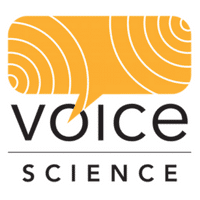How a Growth Mindset Can Impact on Learning a New Skill
Growth mind set is a buzz word but how does it relate to improving your communication? Find out more.

Fixed and Growth Mindset are buzz words that have been thrown around a lot in the last few years, and are increasingly gaining more and more traction world-wide in multiple domains including schools, corporate organisations and sporting clubs. No doubt you have all heard about them, but what exactly are they, and what do they have to do with your communication?
The terms were originally coined after extensive research over 30 years ago by Dr Carol Dweck who studied her students’ ability to bounce back from negative learning experiences and their future learning outcomes. She describes them as:
Fixed Mindset 🧠
An individual believes their “intelligence is static”. This leads to the individual feeling a need to continuously look smart and therefore avoid challenges, give up easily and ignore useful negative feedback.
Growth Mindset 🧠
An individual believes their “intelligence can be developed”. This makes them more willing to participate in challenges, persist through difficult experiences and learn from criticism.
So what does all this have to do with enhancing your communication goals you may wonder?
Feel you might have a bit of a fixed mindset? Or, do you want to enhance your growth mindset? Either way, thanks to the brain’s amazing ability to adapt to change (a process called neuroplasticity), we have some simple strategies below that will enhance your growth mindset and improve your communication goals.
If you’re looking for a team of voice therapists with both expertise and experience, look no further than the speech pathologists at Voice Science. When you complete a Voice Assessment, one of our skilled clinicians meticulously transcribes your vocal health, hygiene and function, meaning that your one-on-one voice therapy program will be specific to you.
3 Ways You Can Boost Your Growth Mindset 🧠
#1 Evaluate
When practicing your communication goals (fluency, accent, language or voice) give yourself time to reflect on 3 aspects you did well and 2 aspects you want to continue to improve upon. At this point you might be thinking “but I didn’t do anything well during my practice”. Well to that we say, STOP RIGHT THERE MY FRIEND! With practice we guarantee you that you have made gains in your goal, and if you are having trouble identifying them we will help you in sessions to make sure you see them.
#2 Chunk
Break your practice goals into smaller steps. Sometimes if you are not seeing any improvements your goal may be too big! Break it in to mini steps and watch yourself climb up your goal ladder (remembering to reward yourself along the way).
#3 Positive Perseverance
Know that it takes time to achieve your communication goals! Don’t stress if it’s taking longer than you expect to achieve your goals. You will get there with time, so believe that you will!
Related Read 🔗

Words by Voice Science™ 2019
This is the second of our 5-part Series on 5 factors That Will impact Your Communication Effectiveness.
Did you miss the first part of this series? Head to 7 Speech Pathology Practice Tips for Adults
Modifying your communication takes time and practice. Many speakers opt to consult with a Speech Pathologist to seek assistance in goal based communication progress with methods based on research.Voice Science™ treats from Melbourne to Stuttgart, Zurich, Mannheim, London … wherever you are via our global online service. We also offer face to face consultation via our Melbourne Collins St clinic.
If you’re looking for a team of voice therapists with both expertise and experience, look no further than the speech pathologists at Voice Science. When you complete a Voice Assessment, one of our skilled clinicians meticulously transcribes your vocal health, hygiene and function, meaning that your one-on-one voice therapy program will be specific to you.

